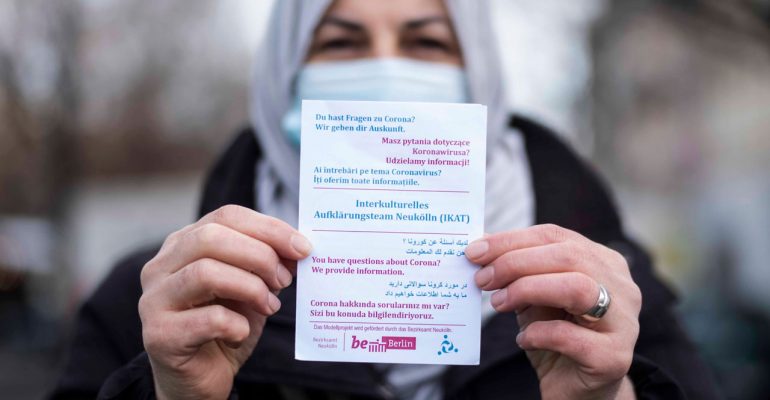German Elections: Disenfranchised Muslims struggle to belong
September 26, 2021 2023-05-06 10:44German Elections: Disenfranchised Muslims struggle to belong

German Elections: Disenfranchised Muslims struggle to belong
As Germans go to polls to vote in parliamentary elections and elect a successor of chancellor Angela Merkel, Cansel Kiziltepe will defend her Berlin seat as a candidate for the Social Democratic Party (SDP)…Though Germany has the second largest Muslim population in Europe, a recent study found that it has the worst record of representation of minorities as members of parliament in Europe, just 14 politicians of Turkish background in the 709-seat Bundestag.
That deficit is echoed in the number of Turkish residents of Germany that have the right to vote, estimated at just 30% by Berlin-based consultancy Data4U. Many of those disenfranchised voters have lived and paid taxes in Germany for decades, including Kiziltepe’s own parents, who moved to Berlin in the 1960s. As the daughter of Turkish parents who came to Berlin in the 1960s, Kiziltepe is one of the few handful of German Muslim politicians in the Bundestag, or the German Parliament. Though Kiziltepe has sat in the Bundestag since 2013, she had to get used to discrimination when out campaigning. Kiziltepe favors voting rights being given to all permanent residents of Germany, providing Turkish immigrants with the same rights as European Union citizens, who are permitted to vote.
According to the Pew Research Center report in 2017, Muslims form the largest minority religious group in the country with about 5 million people, representing about 6.1 percent of the German population. More than half of the Muslims in Germany, about 63.2 percent, are of Turkish and Kurdish origins. Both groups are followed by Muslims from Pakistan, Bosnia, Albania, North Africa, the Levant, Iran, Iraq, and Afghanistan. Most Muslims live in the capital Berlin and the large metropolises of former West Germany.
Source: AboutIslam.net








